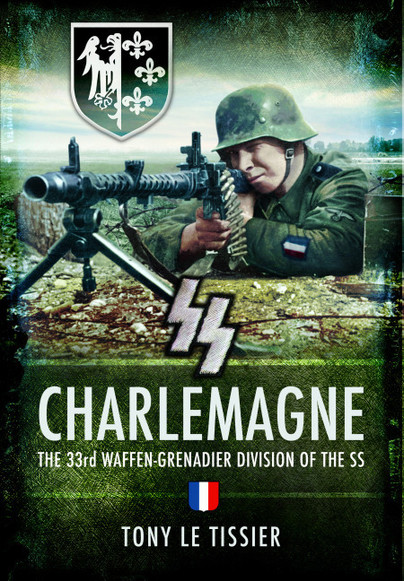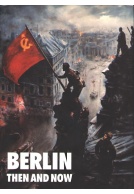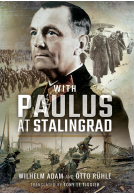SS Charlemagne (Paperback)
The 33rd Waffen-Grenadier Division of the SS
Imprint: Pen & Sword Military
Pages: 184
Illustrations: 30
ISBN: 9781526756640
Published: 25th April 2019
(click here for international delivery rates)
Order within the next 10 hours, 39 minutes to get your order processed the next working day!
Need a currency converter? Check XE.com for live rates
| Other formats available | Price |
|---|---|
| SS Charlemagne ePub (3.5 MB) Add to Basket | £6.99 |
In May 1945, as the triumphant Red Army crushed the last pockets of German resistance in central Berlin, French soldiers fought back. They were the last surviving members of SS Charlemagne, the Waffen SS division made up of French volunteers. They were among the final defenders of the city and of Hitler's bunker. Their extraordinary story gives a compelling insight into the dreadful climax of the Battle for Berlin and into the conflicts of loyalty faced by the French in the Second World War. Yet, whatever their motivation, the performance of these soldiers as they confronted the Soviet onslaught was unwavering, and their fate after the German defeat was grim. Once captured, they were shot out of hand by their French compatriots or imprisoned. SS Charlemagne is a gripping, fluently written study of one of the most revealing side stories of the war.
Contrary to their reputation for ethnic purity, the Waffen SS evolved into a surprisingly diverse organisation with numerous divisions formed around volunteers from occupied nations and beyond. The origins of SS Charlemagne began with the Légion des Volontaires Français in 1941, and the disappointingly small number of Frenchmen who volunteered to serve with it on the Eastern Front. It was not until the final months of the war when a Division of 6,000 men was properly formed and thrown into the futile attempts to halt the Russian advance on Berlin, and it was here that the survivors had the dubious honour of being the last troops to defend Hitler in the Fuhrerbunker. This book is largely formed around the first hand accounts of its members who were fortunate enough to survive both the battle and the post-war French legal system, if they were not executed on the spot, and they reveal the unyielding determination of SS Charlemagne as well as the horrendous fighting which took place amongst the ruins of Berlin and a regime in its death throes.
Pegasus Archive
Read the full review here
SS Charlemagne was one of the most controversial units to fight in the Second World War, made up as it was of French volunteers fighting for the Germans on the Eastern Front.
History of War Website, November 2010
The book roughly falls into two halves. The first looks at the early history of French troops serving with the Germans, the formation of SS Charlemagne and its introduction to combat on the Eastern Front. The second looks at the role the unit played in the battle for Berlin.
The delusional tone of this period with the German high command is particularly well summed up in an insane order of the day issued by the German commander of the unit in March 1945 (pages 87-88), in which he even refers to the idea of the Charlemagne taking part in some future 'liberation' of France. The sma words and those of Captain Henri Fenet, command of the battalion involved in the fighting. The same commander then seems to have believed that the same Americans France would have had to be liberated from were going to accept the Germans as allies and come to his aid in Berlin!
The tone of the book is commendably neutral, aided by the unit not having committed any war crimes (given that the unit was fighting on German soil for most of its existence the opportunity was perhaps lacking). Le Tissier acknowledges that many of the men who joined the unit were fairly disreputable characters, and makes no exaggerated claims for the units combat abilities.
The key strength of this book is its account of the fighting in Berlin as seen by one small unit. Although the tone of this section is uncomfortably congratulatory for modern readers, this is because Le Tissier allows Krukenberg and Fenet to speak for themselves, giving this part of the book a real feel of the times. A valuable but sometimes uncomfortable read.
About Tony Le Tissier
During many years working in several senior official positions in Berlin - including spells as provost marshal and British governor of Spandau prison - Tony Le Tissier has accumulated a vast knowledge of the campaign the led up to the fall of Berlin.
He has researched every aspect of the 1945 battle for the city in unprecedented detail and has published a series of outstanding books on the subject, inlcuding The Battle of Berlin 1945, Farewell to Spandau, Berlin Then and Now, Zhukov at the Oder, Slaughter at Halbe, The Third Reich Then and Now, With Our Backs to Berlin, Death Was Our Companion, Berlin Battlefield Guide: Third Reich and Cold War and The Siege of Küstrin 1945: Gateway to Berlin.





















